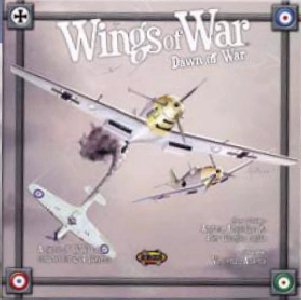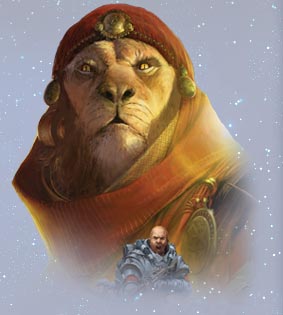Welcome to Purple Pawn, covering games played around the world by billions of people every day.
BoG: Is FFG the MSFT of the Game World?
03 Sep
Posted by rjstreet as Card Games, CCGs, Electronic Games, Miniatures, Modern Board Games, Other, RPGs
 Business of Games (BoG) is our regular series looking at the business of games from the perspective of the gamer.
Business of Games (BoG) is our regular series looking at the business of games from the perspective of the gamer.
Is Fantasy Flight Games the next Microsoft? That’s the question asked in this week’s episode of the Dice Tower, a popular board game podcast by veteran reviewer Tom Vasel and Sam Healey. At first blush, the idea seems a bit odd – after all, many in the board game world see FFG as something slightly better than Santa Claus, depositing gaming goodness to good little gamers everywhere with amazing consistency. But are they really the same small company that we grew up loving?
FFG is the labor of love of Christian Petersen, starting as a simple importer of European comic books. Over the years, FFG struggled massively and nearly went under several times over the years. The downturn in the comics industry during the 90’s eventually forced FFG out of the comic business, forcing them to focus on board games (and the now famous Twilight Imperium). The success of the Twilight Imperium game provided a much needed win for the FFG team and they proceeded to focus on games.
Over the years, FFG has produced some of the most beloved games in the US and the world in general, including Twilight Imperium, Descent, Arkham Horror, Ingenious, War of the Ring and Wings of War. In many ways, FFG champions all that is good about Ameritrash games while still providing a huge variety that can engage even the most dedicated Eurogamer. These games have included collaborations with some of the industry’s most prominent designers such as Reiner Knizia, Martin Wallace and Bruno Fuidutti. Its fair to say that FFG was on their way to becoming a juggernaut in the board games industry without peer by the early 2000’s.
And then the licenses, buyouts and corporate agreements began. FFG proceeded to procure licenses to soe of the biggest properties in entertainment:
- Lord of the Rings
- A Song of Fire and Ice
- Battlestar Galactica
- World of Warcraft
- Doom
- Starcraft
- Disney’s Kingdom Hearts
But licenses aren’t new to the board games world – many large publishers have attempted to make successful games based on licenses, but its fair to say that none have had the level of success of FFG.
 At the same time, FFG has branched out from its bread and butter of board games, launching ventures into miniature games, RPGs and CCGs. Some of these products have faired well, but most have struggled. The RPG lines in particular had difficulty in gaining traction (even though many of them are quite good, particularly Midnight). The Anima Tactics miniature game has been met with lackluster reviews, as has the card game (the RPG seems to have a loyal following however). The CCG lines, Call of Cthulhu and A Game of Thrones, became niche favorites, but ultimately couldn’t sustain their cost (both of these lines have been relaunched in a non-collectible format).
At the same time, FFG has branched out from its bread and butter of board games, launching ventures into miniature games, RPGs and CCGs. Some of these products have faired well, but most have struggled. The RPG lines in particular had difficulty in gaining traction (even though many of them are quite good, particularly Midnight). The Anima Tactics miniature game has been met with lackluster reviews, as has the card game (the RPG seems to have a loyal following however). The CCG lines, Call of Cthulhu and A Game of Thrones, became niche favorites, but ultimately couldn’t sustain their cost (both of these lines have been relaunched in a non-collectible format).
What about corporate agreements? Last year, FFG became the sole distributor for Rackham products in the United States, solving the largest complaint of many AT-43 fans by providing consistent, timely delivery of product (its worth noting that FFG’s track record for on-time product delivery is comparable with most other large games companies, not great, but nowhere near as abysmal as Rackham’s). Not long after, Games Workshop pulled the plug on the massively successful Warhammer 40K RPG only to reveal that the rights for production and sale of Games Workshop’s non-miniature products had been granted to FFG. In general, FFG has used alliances and licenses to fill out areas of games where they had not been previously successful (Warhammer 40K and Fantasy in role playing, Kingdom Hearts and UFS in CCGs and Rackham’s lines for miniature games).
During this time, FFG has attempted some projects that have left many industry watchers confused. The most significant of these is the Midnight movie/tv pilot based on their RPG line. While a very cool idea, many wonder if this is an instance of FFG losing focus on their core competencies and biting off more than they can chew. FFG also announced several video game related projects at GenCon, including Tide of Iron and Wings of War to X-Box Live and the Playstation Network, as well as producing Citadels for the iPhone.
And now we have our first major buyout: the purchase of the BattleLore assets from Days of Wonder. Following this purchase, industry estimates put FFG as the 5th largest hobby game publisher in the world (note that #1 and #2 are both Hasbro owned companies).
 The pattern is strikingly similar to that of Microsoft from all of these perspectives. But has FFG lost its way? For a few basic reasons, I don’t think so:
The pattern is strikingly similar to that of Microsoft from all of these perspectives. But has FFG lost its way? For a few basic reasons, I don’t think so:
- Reason 1: They focus on the core while still taking chances – FFG continues to put major resources into their core competency (games), producing both games that are gauranteed successes and games that are bigger gambles
- Reason 2: Everything they do supports their core competency – Ultimately, FFG knows they are a games company and even projects like the Midnight video series are designed to get people gaming
- Reason 3: They act as an industry guardian, not a parasite – None of the alliances or purchases that FFG has made have been hostile; to the contrary, each of the deals mentioned above were designed to ensure that games could continue to come to market when there was a potential they might otherwise not continue publication
So from my perspective, I’m excited to see what FFG does with its ever increasing stable of licenses, designers and agreements. Hey, more high quality games can’t be a bad thing can it? Let us know in the comments!
5 Comments
Sorry, the comment form is closed at this time.
Trending
- Massdrop.com
- Oh the Irony—Illuminati Card Game Continues to Inspire Conspiracy Theorists
- Home
- Footprints, an Educational Ecology Game
- USPS Adds Board Game Flat Rate Box
- Baila, the Estonian Drinking Card Game
- Crystal Caste Wins Dice Patent Suit Against Hasbro
- Mirror Game, Red and Blue
- Are Board Games Dangerous?
- The Truth About Dominoes On Sunday in Alabama
Archives
Most Popular Articles
- Oh the Irony—Illuminati Card Game Continues to Inspire Conspiracy Theorists
- The 20 Most Valuable Vintage Board Games
- The Truth About Dominoes On Sunday in Alabama
- Sequence Game, and Variants
- USPS Adds Board Game Flat Rate Box
- Baila, the Estonian Drinking Card Game
- The 13 Most Popular Dice Games
- Are Board Games Dangerous?
- Guess Who? The Naked Version
- What Happened to the Jewel Royale Chess Set?
Recent Posts
- Toy Fair 2019—Breaking Games
- Talisman Kingdom Hearts Edition
- Toy Fair 2019—Winning Moves
- Toy Fair 2019—Games Workshop
- Toy Fair 2019—Star Wars Lightsaber Academy
- Toy Fair 2019—Stranger Things Games
- Toy Fair 2019—HABA
- Licensing Roundup
- Game Bandit
- 2018 A Difficult Year For Hasbro But Not For D&D Or MtG
Recent Comments
- on Toy Fair 2019—Winning Moves
- on Game Bandit
- on Second Look—Dungeons & Dragons Waterdeep Dragon Heist
- on Crowdfunding Highlights
- on Beyblade SlingShock
- on Game Bandit
- on Game Bandit
- on Watch This Game!, the Board Game Review Board Game
- on Second Look—Vampire: The Masquerade 5th Edition
- on Palladium Books Loses Robotech IP License, Cancels Five-Year-Overdue Robotech RPG Tactics Kickstarter






Great article. Comparisons to MSFT are kind of strange, however, when the business they operate in is so tiny in comparison, and there are so many other viable players. Also, when I think MSFT, I think “deal with MSFT, or have no business” and “We will make a free version of what you do so that others stop using yours, and then we will stop supporting it”).
I usually think Hasbro = MSFT.
Yehuda
I completely agree Hasbro=MSFT.
In all honesty, with their current track record and ability to evolve with the industry I would love to see FFG overtake WotC on the list of largest hobby game companies. WotC has bought many games a licenses in the past just to keep that game from being produced. They are also notorious for cancelling games that look like they might fail, even though the game is great.
I say any company that goes to great lengths to keep Cthulhu around deserves to be #1.
Interesting that a comparison to Microsoft is considered a negative comment. I happen to like Microsoft and their products.
Now, about the games… It’d be difficult not to notice FFG’s growth, or it’s branching out into new genres. But I, for one, am happy to see it. Kingsburg and Tribune (new Euro-style strategy games) are two of my current favorites. FFG’s products are high quality. They’re not inexpensive, but you get a lot of value for your money. Also, diversification should be good for the long-term health of the company.
FFG has definitely been on the side of the angels if you’re a gamer. One note that I left out of the article is their showing at the most recent large cons – nearly everyone I’ve spoken with has mentioned how much larger the FFG booth was than their competitors at both Origins and GenCon. What strikes me about this is that they use their booth space very effectively, part store, part demo area and part play test area. They’ve definitely grown larger, but I think they’ve done so in a positive way.
While FFG might be “on the side of angels” to a gamer, Mr. Peterson has burned his fair share of bridges of people in the industry.